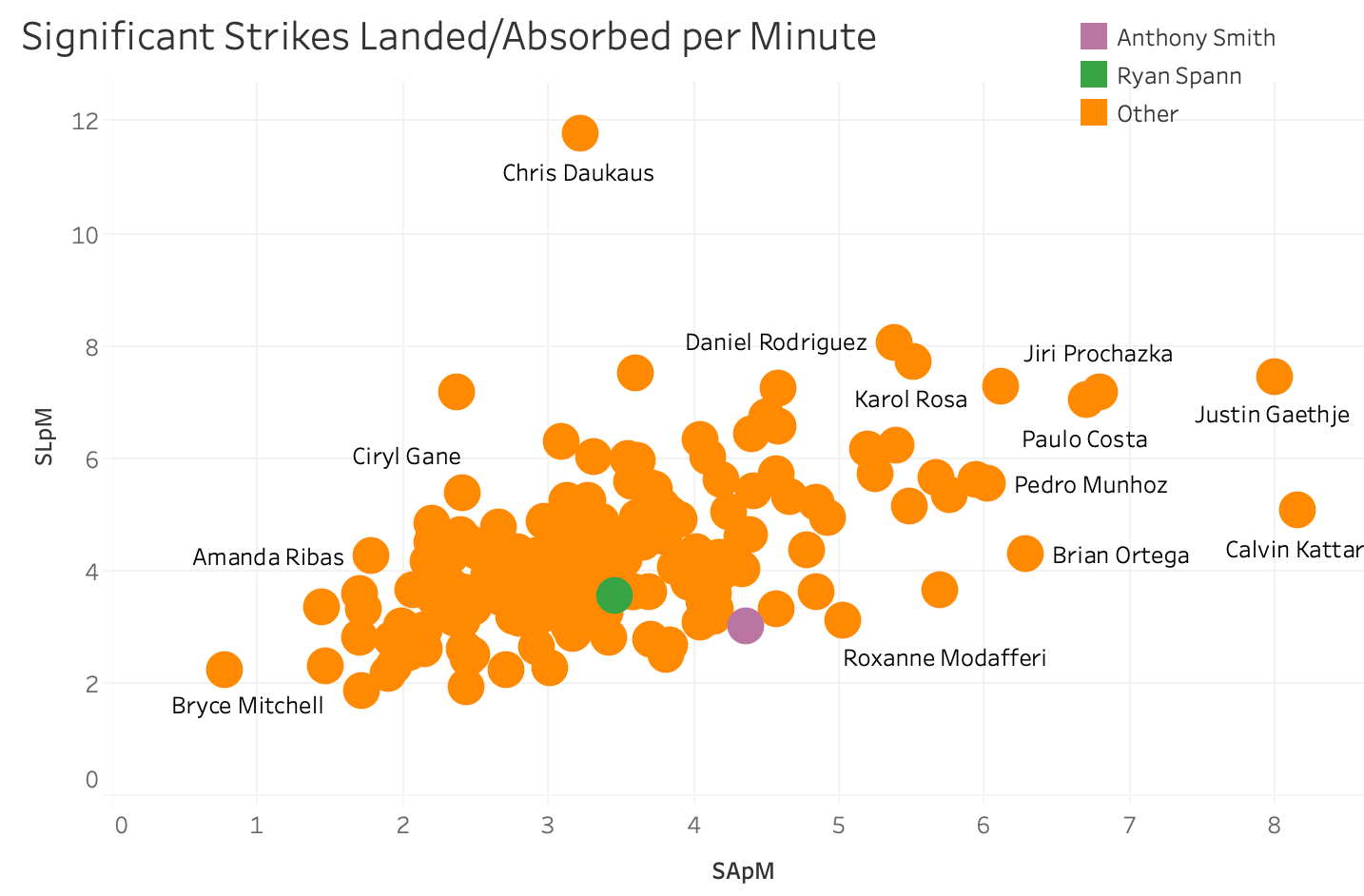The stats hate Anthony Smith. Does that matter?
While fight stats can say a lot about an upcoming fight, predicting an outcome with some sort of statistical model is overwhelmingly difficult. Fight stat collection has come a long way over the last decade, but in many ways it is still in its infancy compared to other sports. On top of that, combat sports in general can be inherently unpredictable.
One of the things that I have played around with over the years is adapting pythagorean expectations for MMA. It is a relatively simple formula originally developed by Bill James to estimate the percentage of games a team “should” have won based on their run total. For example, if a team had a .900 pythagorean expectation at the end of the season and a .650 winning percentage at the end of the year, one could assume that the team actually under performed during the season.
The following is the calculation from Wikipedia.
It was easy enough to adapt a striking and grappling version of the formula.
From there I went a little deeper and made the striking pythagorean expectations (SPE) a weighted average based on striking position (distance, clinch and ground). Each SPE is multiplied by the proportion of striking a fighter has performed in each position. For example, a fighter’s distance SPE would be multiple by the number of significant strikes landed and absorbed at distance divided by his or her total number of significant strikes landed and absorbed at distance.
At first glance, the average of the weighted SPE and the GPE seems to do a pretty solid job of identifying top fighters or at least those who statistically dominate across the board. The top 20 are listed below.
One thing that really stands out is that the formula certainly does not like Anthony Smith. His average pythagorean expectation is the ninth worst among ranked UFC fighters. His weighted SPE is 11th worst, and his grappling SPE is still well below average.
In a lot of ways, this makes sense. Smith has a -1.36 striking differential, which ranks 174th among ranked UFC fighters, ahead of only Roxanne Modafferi (-1.90), Brian Ortega (-1.99), Tyson Nam (-2.05) and Calvin Kattar (-3.08), and he has not even fought Max Holloway.
In terms of takedowns, he averages 0.47 takedowns per 15 minutes but allows his opponents to land a whopping 1.89 takedowns per 15 minutes. That leaves him with a -1.42 takedown differential, which ranks 160th among ranked fighters.
With stats like those, it is easy to imagine why a formula would have a low opinion of his performance. However, there is one place where Smith really excels. He is a very strong finisher. Throughout his UFC/Strikeforce career, he has 12 victories and only one has come via decision. He has only had the edge on significant strikes in five of those fights. Smith is currently tied for the sixth most finishes among ranked UFC fighters behind only Derrick Lewis (12), Vicente Luque (13), Dustin Poirier (14), Glover Teixeira (15) and Charles Oliveira (17). Oliveira’s 17 career finishes in the promotion is the all time UFC record.
For this reason, Smith is the favorite on Saturday going into his main event bout against Ryan Spann. Spann certainly has better stats than Smith, but he has been finished in both of his UFC fights, and he will need to survive the 25-minute main event. Even if Smith struggles for the majority of the fight, he remains a threat to overcome the statistical disadvantages and finish the fight.







